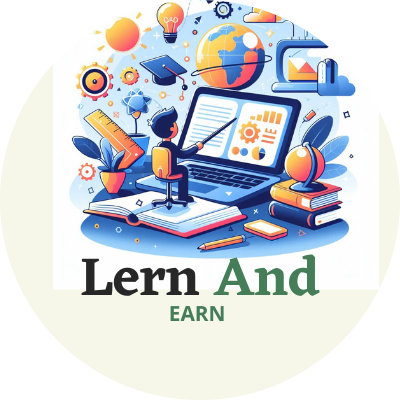Introduction:
In today's digital age, the landscape of work is rapidly evolving, with remote opportunities becoming increasingly prevalent. The rise of remote work has opened up a world of possibilities for individuals seeking to acquire new skills and earn income from anywhere in the world. Online learning has emerged as a powerful tool for skill development and career advancement, offering unparalleled flexibility, accessibility, and a vast array of courses tailored to diverse interests and needs.
Section 1: The Power of Online Learning:
Online learning offers a multitude of advantages that make it an attractive option for individuals looking to expand their knowledge and expertise. With the flexibility to learn at their own pace and on their own schedule, students can fit education into their busy lives without sacrificing other commitments. Moreover, the accessibility of online courses eliminates geographical barriers, allowing learners from around the globe to access high-quality education regardless of their location. Whether pursuing a new hobby, acquiring job-relevant skills, or advancing in a career, online learning provides a pathway to success that is both convenient and effective.
Section 2: Strategies for Successful Online Learning:
To maximize the benefits of online learning, it's essential to adopt effective strategies that promote engagement and productivity. Setting clear goals and objectives helps learners stay focused and motivated throughout their educational journey. Creating a structured study schedule ensures consistent progress and prevents procrastination. Additionally, leveraging online forums and communities provides opportunities for collaboration, support, and knowledge sharing with like-minded individuals.
Section 3: Monetizing Your Skills:
Once you've acquired valuable skills through online learning, the next step is to monetize them and turn your expertise into income. Freelancing offers a flexible and lucrative way to capitalize on your skills, allowing you to work on projects of your choosing and set your own rates. Alternatively, starting an online business enables you to leverage your expertise to create products or services that meet the needs of your target market. Participating in the gig economy provides opportunities for short-term contracts and freelance work, allowing you to diversify your income streams. Additionally, offering online courses and coaching services allows you to share your knowledge and expertise with others while generating revenue.
Section 4: Tools and Resources for Online Learning and Earning:
A variety of tools, platforms, and resources are available to support your online learning and earning endeavors. Online course platforms such as Coursera, Udemy, and Skillshare offer a wide range of courses across various subjects and disciplines. Freelance marketplaces like Upwork and Freelancer connect freelancers with clients seeking their services, providing opportunities for remote work and project-based assignments. Productivity apps such as Trello, Evernote, and Todoist help you stay organized and on track with your goals. Websites for networking and professional development, such as LinkedIn and Meetup, facilitate connections with industry professionals and like-minded individuals, opening doors to new opportunities and collaborations.
Conclusion:
In conclusion, online learning and earning hold immense potential for individuals looking to advance their careers, acquire new skills, and achieve their goals. By harnessing the power of online education and leveraging their expertise, individuals can unlock new opportunities for personal and professional growth. Whether freelancing, starting a business, or offering online courses, the possibilities are endless. As you embark on your online learning and earning journey, remember to set clear goals, stay motivated, and take advantage of the abundance of tools and resources available to support you along the way. The future of work is online – embrace it and seize the opportunities that await.
Additional Tips:
Use subheadings, bullet points, and visuals to enhance readability and engagement.
Incorporate personal anecdotes, quotes, or case studies to add depth and authenticity to your content.
End the post with a question or invitation for readers to share their experiences or insights in the comments section.












